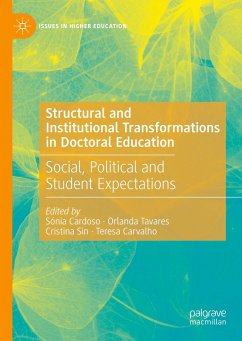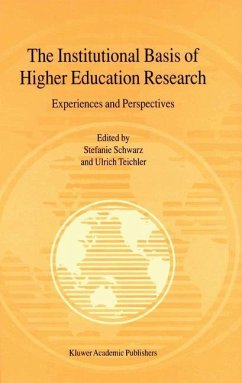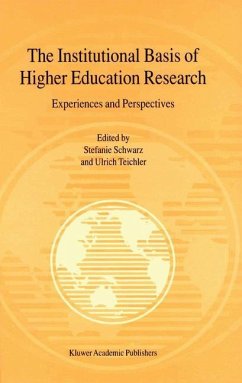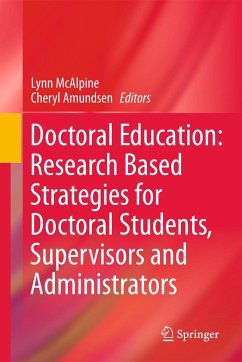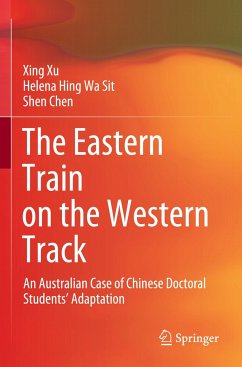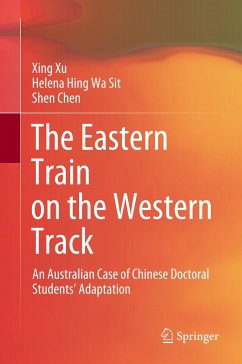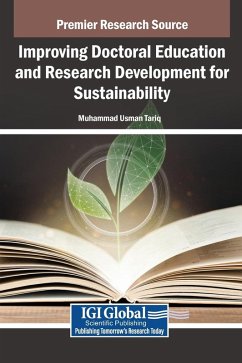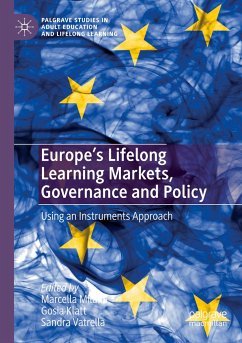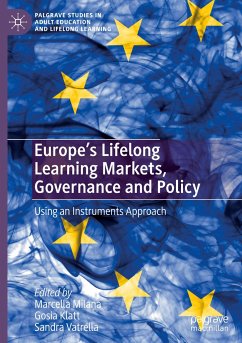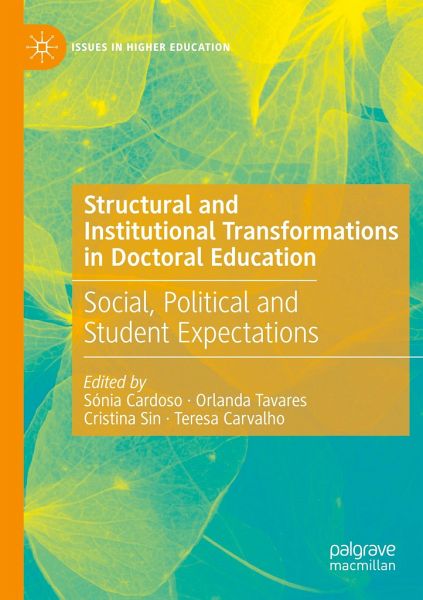
Structural and Institutional Transformations in Doctoral Education
Social, Political and Student Expectations
Herausgegeben: Cardoso, Sónia; Tavares, Orlanda; Sin, Cristina; Carvalho, Teresa
Versandkostenfrei!
Versandfertig in 6-10 Tagen
113,99 €
inkl. MwSt.

PAYBACK Punkte
57 °P sammeln!
This book analyses the structural and institutional transformations undergone by doctoral education, and the extent to which these transformations are in line with social, political and doctoral candidates' expectations. Higher education has gone through profound changes driven by the massification and diversification of the student body, the rise of neoliberal policies coupled with the reduction in public funding and the emergence of the knowledge society and economy. As a result, higher education has been assigned new and more outward-looking missions, which have subsequently affected doctor...
This book analyses the structural and institutional transformations undergone by doctoral education, and the extent to which these transformations are in line with social, political and doctoral candidates' expectations. Higher education has gone through profound changes driven by the massification and diversification of the student body, the rise of neoliberal policies coupled with the reduction in public funding and the emergence of the knowledge society and economy. As a result, higher education has been assigned new and more outward-looking missions, which have subsequently affected doctoral education. The editors and contributors examine these transformations and changes at the macro, meso and micro levels: wider and more structural changes as well as doctoral candidates' experience of the degree itself. This book will be of interest and value to scholars of doctoral education and the transformation of the university more widely.



